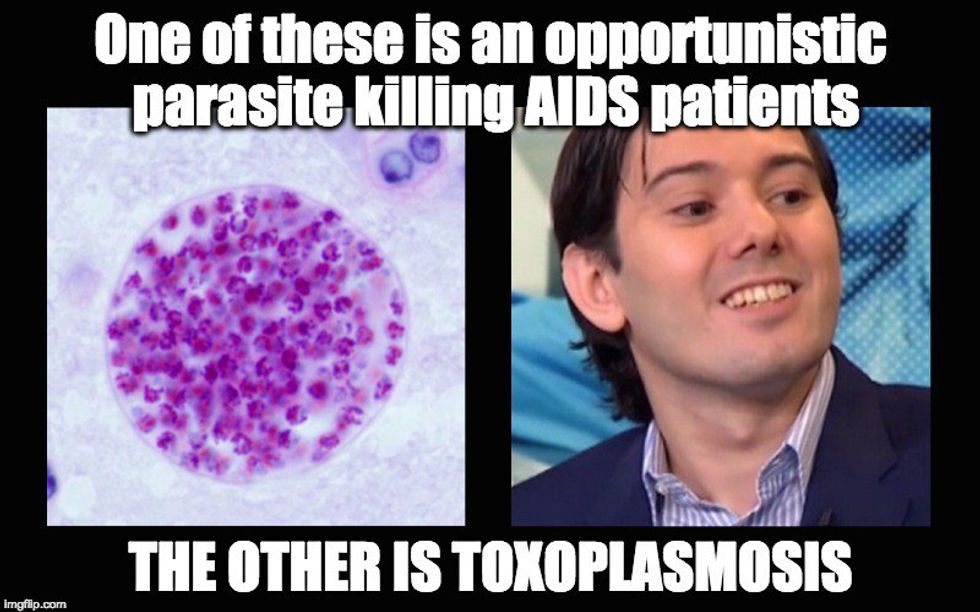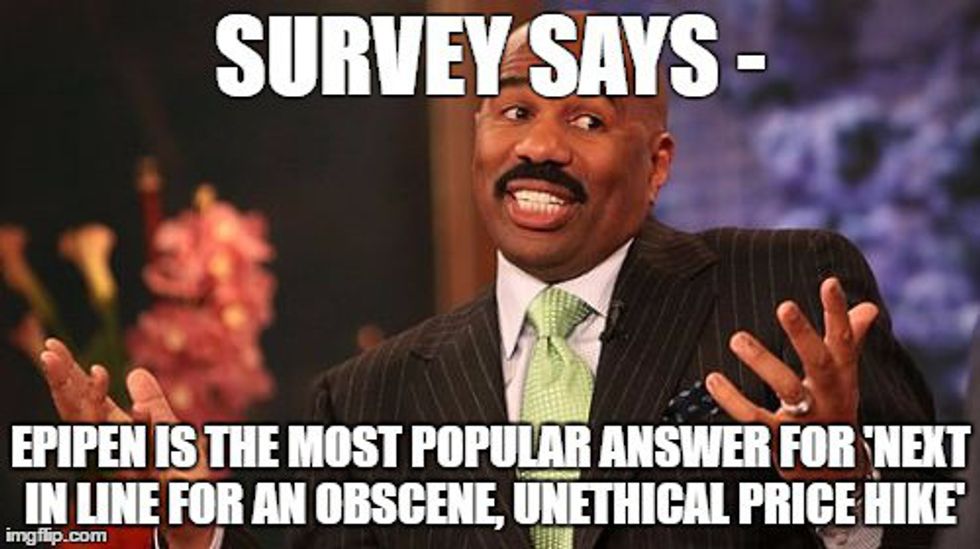The pharmaceutical industry has been in the news recently. For all the wrong reasons.
Earlier this year, in February (gosh, has it already been seven months?), Martin Shkreli and the Daraprim Debacle (which, by the way, is a J.K. Rowling book just waiting to be written) burst onto the national consciousness, when Mr. Shkreli was grilled by Congress members thanks to his decision to raise the price of Daraprim in September of 2015, a medication used by AIDS patients, from $13.50 a pill to $750 a pill. In the fallout that ensued, not just in media coverage, but also on social media platforms, that other big fount of wisdom and accuracy, memes were made, scorn was heaped, but below the brouhaha, the fact remains that the price has still not been lowered by Turing Pharmaceuticals to the original price of $13.50, although it has been dropped to $375 dollars for hospitals, which is still an obscene increase of 2,500% percent of the original.
The final score, then:
Corporate Juggernauts and Profit Graphs = 2,500
Patients and Sufferers = 13.50
(orGermany vs Brazil, whichever version you get your kicks from).
Surely, that should be it, then? One big pharma scandal per year should be enough, yes?
Think again, citizen.
Understandably, the umbrage over the EpiPen price hike is much more worrying. I had to look up what Daraprim did, like most people, I'm sure. I know what EpiPen does. The brand name is synonymous with its function. It is a more common name than Daraprim, which burst forth from the shadows of obscurity - only the healthcare industry workers whose job it was to know the drug existed, knew about it before the debacle.
EpiPen, on the other hand, is like Neosporin - everyone knows what it is, what it does. It is taken for granted - availability, then, must be guaranteed forever. Public institutions, government establishments - they all purchase it as it is an emergency medication, and taxpayers foot the bill when it is obtained through insurance coverage. It is a medication of necessity, simply put. There can be absolutely no humor involved if a medication that can save a life becomes inaccessible to the people who depend on it being priced at the same amount forever.
Which is why the testimony of Heather Bresch does not bode well at all for potential future price hikes of any medicines out there on the market. In a rare display of bipartisan support, Congress agreed wholeheartedly that Mylan indeed had, and still possess, a stranglehold, a virtual monopoly, on the EpiPen market, and in a bid to be hypocritically generous, they offered it to schools at the old price for the hike, basically saying 'look at our magnanimity' when in truth it was nothing but mendacity and lowness. Ms. Bresch said it was fair, but then of course she did. While they also promised to introduce a cheap generic version of the same medicine (basically everything but the EpiPen branding), Ms. Bresch pointed the finger instead at out of pocket insurance costs and delivered a deliberately convoluted speech on the intricacies of pricing pharmaceuticals, something which seemed to anger Congress even more given the already razor thin ice Mylan has been walking on since this story broke.
Profit incentives and the free market drive the global economy. They drive America. But if those phenomena are used by companies to line their pockets while sticking it to the unnamed millions who depend on the low price of the product being offered, whose low price is indeed responsible for the company's success in the first place, then we might as well do away with economics and regulation, although that is another topic.
It stands to reason, however, that medications must be - pardon the pun - immune to price gouging tactics.























